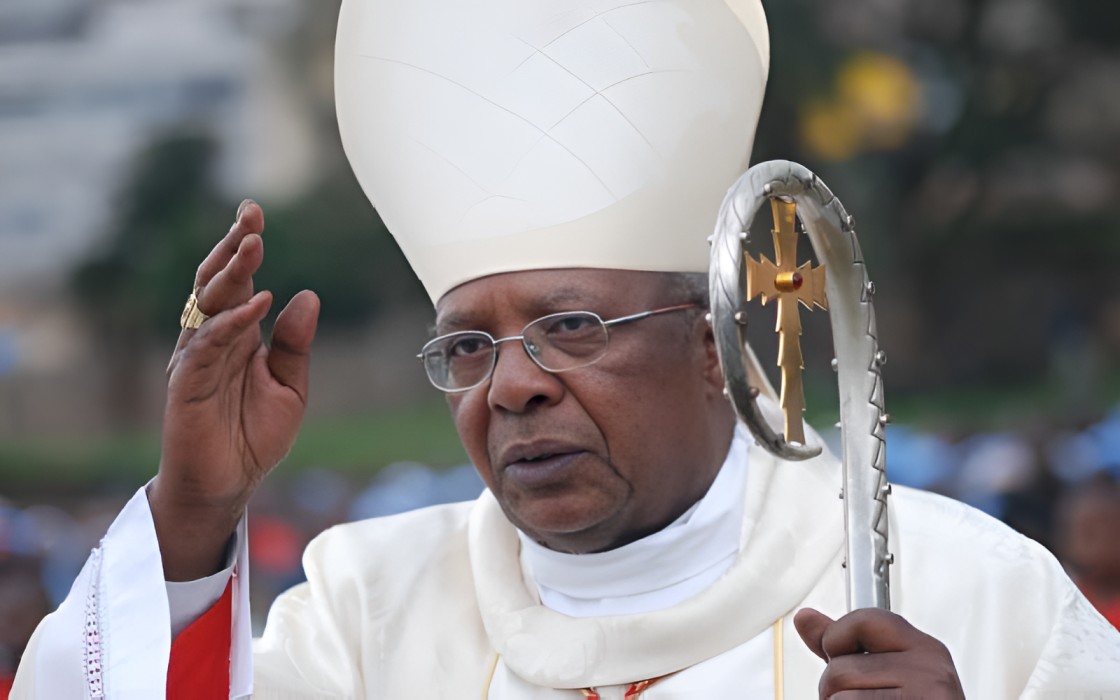Health concerns prevent Cardinal Njue from attending Papal vote

The Archdiocese of Nairobi said on Wednesday that the Kenyan cardinal will not be involved in the selection of Pope Francis’s successor, citing his current health status.
Cardinal John Njue will not be travelling to Rome for the upcoming papal conclave, with health concerns preventing him from taking part in the election of the next pope.
His withdrawal, along with that of Spanish Cardinal Antonio Cañizares, was confirmed by their respective archdioceses.
The Archdiocese of Nairobi said on Wednesday that the Kenyan cardinal will not be involved in the selection of Pope Francis’s successor, citing his current health status.
A similar announcement came from the Archdiocese of Valencia, which said Cañizares would also not attend for the same reason.
The Vatican had earlier revealed that two cardinal electors would not be part of the conclave due to medical issues, though their names were not made public at the time.
This was clarified later through confirmations by their local church authorities.
Born in 1945, Cardinal Cañizares has served the Church for decades, including as bishop of Ávila, archbishop of Granada, and Spain’s primate archbishop in Toledo.
From 2008 to 2014, he was prefect of the Vatican’s Congregation for Divine Worship and the Discipline of the Sacraments.
In 2014, he returned to Spain to serve as archbishop of Valencia until his retirement in 2022. Pope Benedict XVI named him cardinal in 2006.
Cardinal Njue, born in 1946, became a priest in 1973.
He was ordained in St. Peter’s Basilica by Pope Paul VI for the Diocese of Meru in Kenya. At age 40, he was appointed bishop of Embu by Pope John Paul II, where he served until 2002.
Before being made a cardinal by Pope Benedict XVI in 2007, Njue took on various leadership roles in the Kenyan Church.
He was coadjutor archbishop of Nyeri and apostolic administrator of Isiolo. He also served two terms as president of the Kenya Conference of Catholic Bishops, first from 1997 to 2003 and again from 2006 to 2015.
His commitment to the Church continues despite age and illness. He is still a member of the Vatican’s Dicastery for Evangelization.
His record in the most recent Pontifical Yearbook shows he retains the right to vote in a conclave until January 1, 2026.
While eligible, Njue has been dealing with health challenges in recent years. These have limited his ability to appear at events and take on duties he once performed regularly.
In January, during a service at St. Teresa of Calcutta Catholic Church in Tena, the cardinal spoke about his health in public.
"As you can see, I am not very strong, but I committed to coming and celebrating this mass with you. There is a lot of work to be done in God’s vineyard, and you are the ones to do it. It is your time," he said.
His decision to sit out the conclave means the Church will move forward in choosing a new leader without one of Africa’s senior cardinals.
The conclave is expected to draw 133 eligible cardinal electors from around the world.
According to Church rules, a two-thirds majority is required to elect a new pope.
With Cañizares and Njue out, the number of voters slightly reduces, but the process will continue as guided by tradition.
Cañizares and Njue are both respected figures in their countries and in the wider Catholic Church.
Their absence will be felt during this crucial moment in Church history.
